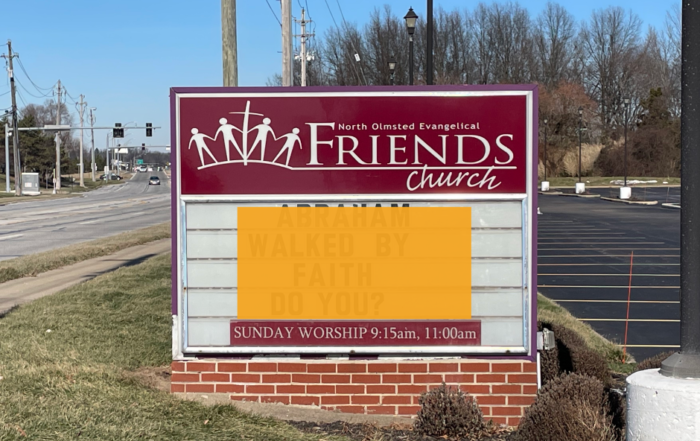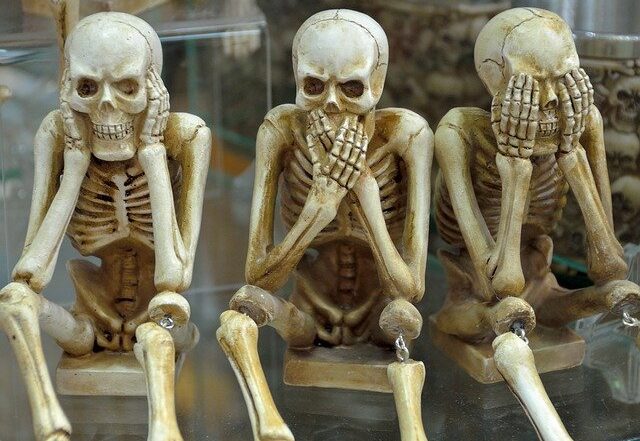Dear Christian, It’s OK to Celebrate Halloween
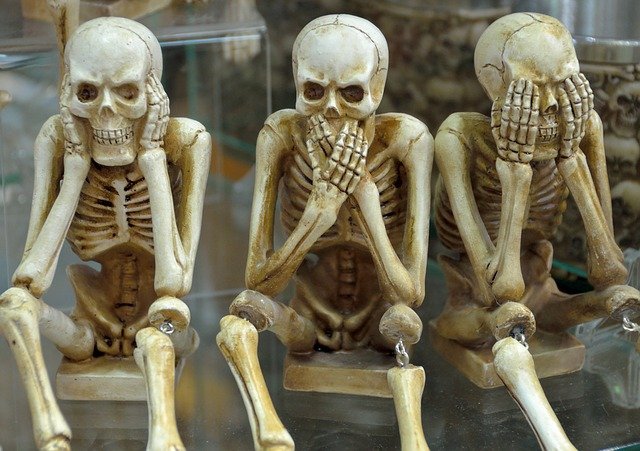
Christians and Halloween Confusion
The holiday of Halloween conjures up different feelings for Christians across country. Some consider Halloween a fun time for kids to wear cute costumes and get free candy. It’s an excuse for little girls to become a princess for the night or for parents to dress their babies up as Batman.
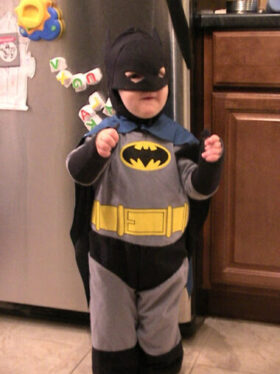
For others it’s a dangerous night built upon an ancient pagan festival. The holiday is often marked by images of witches, bones, graveyards, ghosts and death; dark things Christians typically do not condone.
Many Christians may wonder how a follower of Jesus should respond to this confusing holiday. Their church might offer some Halloween alternative but not fully explain their reasons beyond declaring the holiday as evil. However, if you are wondering, I want to let you know- it’s ok to celebrate Halloween as a Christian. I know for many followers of Jesus this is not a point of view you commonly hear so I’d like to fully explain. I’ll start with the history of the holiday and then discuss the church’s modern responses.
History of Halloween
The holiday we know today as Halloween is a mix of many traditions. Navigating its complex history is akin to explaining the roots of American democracy. Yes, we can go back all the way to Greek and Roman rule to understand the underpinnings of our present political system, but in the end America has created something entirely its own.
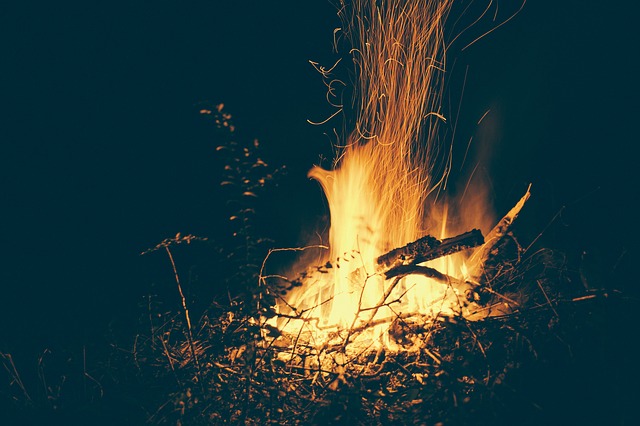
Samhain
The earliest celebrations of the holiday were by the Celtic people of ancient Britain. They celebrated a festival called Samhain before the common era. This festival celebrated the fall harvest, commemorated the end of summer and also the beginning of the dark time of the year. During the three-day festival the Celts believed the barriers between the living and those who had died were broken down. People danced around bonfires and dressed up in animal skins to ward off evil spirits.
Roman Influence on Halloween
As the Romans conquered the Celts, they incorporated Samhain into two Roman festivals they already celebrated. The first was Feralia- a day to commemorate the dead and second was a day to honor Pomona, the goddess of fruits and trees. She was symbolized by an apple.
Early Christians and Halloween
As Christianity spread across the Roman Empire, church leaders would adopt and repurpose pagan holidays, painting them with Christian meaning. A Catholic holiday to celebrate Martyrs was moved to the end of October by Pope Gregory III while expanding the day to celebrate all saints. By 1000 AD, All Souls Day offered a Christian version of many of the traditions of Samhain and became popular across Europe. Christians would dress up as saints or death-like costumes to represent martyrs (in some places), and celebrated with sweet treats and bonfires. In some places the poor would go from house to house asking for food or sweet cakes and offered to pray for dead relatives. This practice was called “going a-souling“.
Other Christian Pagan Holidays
Halloween was not the only pagan holiday turned Christian by previous popes. Other pagan holidays include Valentine’s Day, New Year’s Day, Easter Sunday, Thanksgiving, and Christmas. In fact many Christmas traditions are built on pagan festivals. The day of Christmas was set during the Roman festival of Saturnalia; with festivities including decorating houses with greenery, lights, and giving presents to children and the poor.
Other Christmas traditions came from the Norse festival of Yule. These include eating ham, Santa Claus, mistletoe, festive wreaths, and burning a large “Yule” log. This knowledge might give you pause the next time your family starts talking about “Yule-tide cheer”. Christians concerned about supporting ancient pagan holidays should take time to examine the un-Christian origins of other beloved holiday traditions.
Halloween Comes to America
Although early colonists swapped ghost stories on Halloween, it wasn’t until the 1800’s when the Irish arrived that Halloween became popular in America. Ghost stories gave way to community parties, playing “tricks” and kids in costumes. By the 1950’s Halloween had become a completely secular holiday where kids in costumes went house to house asking for candy.
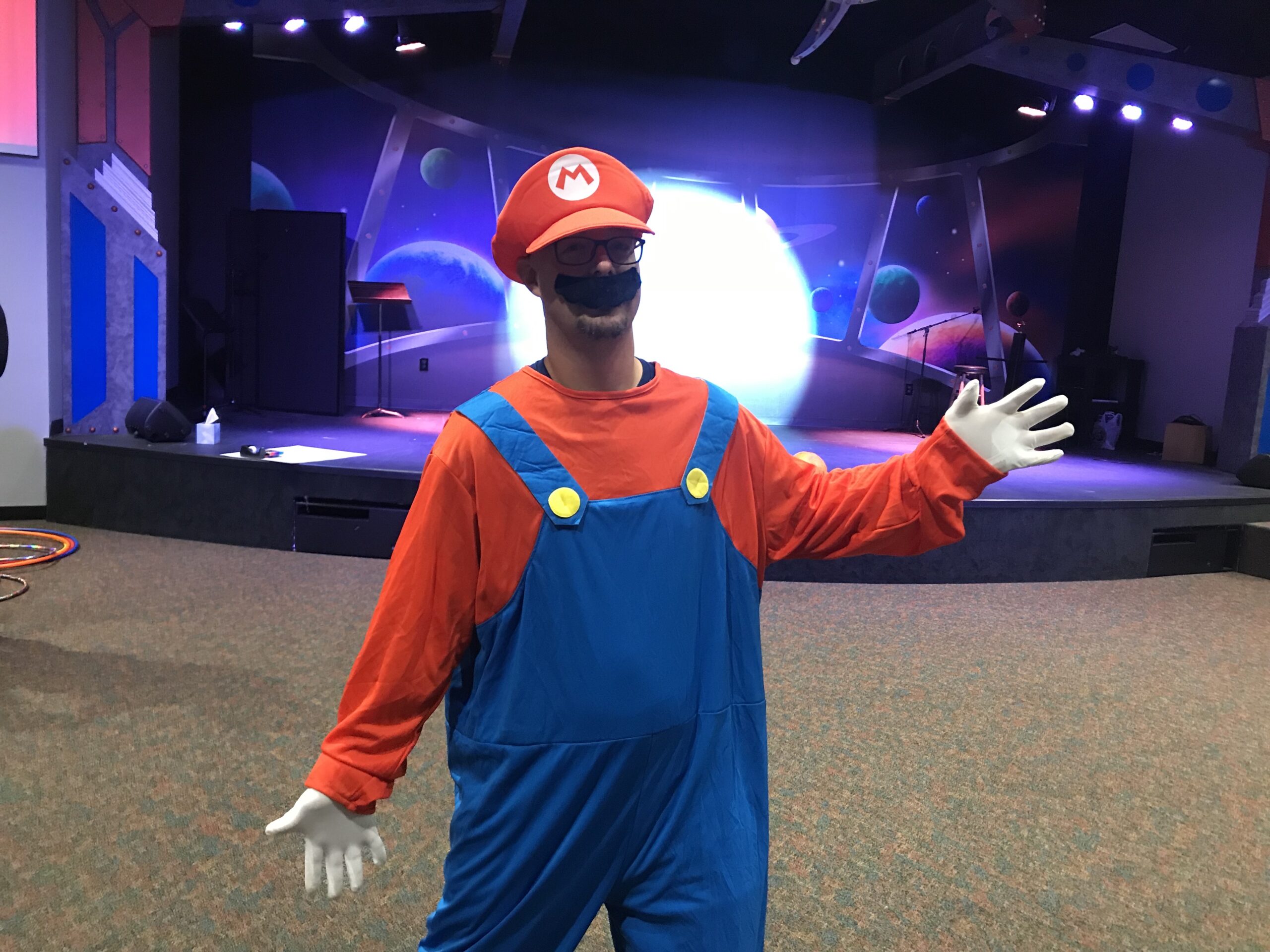
Addressing Common Christian Halloween Concerns
Most Christian posts regarding Halloween declare it as a holiday devoted to the devil. They point to its history and focus on witches, death, and other dark things. One writer went so far to even suggest that dressing up for Halloween is, “tantamount to worshipping the devil.” Below are the most common complaints Christians have again Halloween.
Halloween is a Wiccan holiday and Christians shouldn’t celebrate witchcraft.
It’s true that the modern holiday of Halloween coincides with one of Wiccan’s 8 Sabbats– Samhain. Inspired by the original Samhain, Wiccans use the sacred holiday as a time of contemplation and remembering of those who have passed. However, Christians should keep a few things in mind. First, another one of the 8 Wiccan Sabbats is Yule, the pagan holiday that inspired Christmas. If connections to Wiccan holidays were of utmost concern, then Christians should reconsider the traditional celebration of Christmas.
Second, does it really matter? As a Christian, should we be concerned about the holidays of other religions? Third, the connection to Wicca is relatively new as the movement began in the United States in the 1960’s. So, it’s not like there’s been a continual mainstream connection to Wicca since the beginning of time. Instead, this relatively new spiritual movement decided to adopt ancient festivals that aligned with their view of the seasons.
Bottom Line: Leave the Wiccan’s out of it.
The history of Halloween is pagan.
This argument has already been addressed. Yes, the original festival that inspired Halloween was pagan, as was Christmas and other holidays. However, their histories are a mix of pagan, Christian and secular, mixed with a little bit of old-fashioned American consumerism. As such, the American holiday today is its own American thing.
America, as a country is a mixing pot of cultures and history. The English language is a mixing pot of Greek, Latin, German, and many other languages. We could go back and argue whether today’s usage of certain words is appropriate for Christians to use if they were used during a pagan holiday originally. We have to accept that cultures, words, meanings, and traditions change over time. What meant one thing at one time could mean something completely different another.
Bottom Line: Present day Halloween in America is its own commercialized American holiday.
Trick or Treating is unsafe.
A certain level of fear developed in the 1980’s surrounding occult activity and the corruption of the nation’s youth. Fear of satanic activity was exacerbated by stories of child abduction and candy containing pins or razors. Most of these reports were grossly exaggerated. More than actual threats, they became like fear-based “ghost” stories parents told each other at parties in the name of protecting their children. These stories, however unfounded in reality, combined with the general fear of losing innocent children to the enticing invitation of the occult, to make Halloween an enemy that must be avoided at all costs.
The truth is children are more likely to get hurt at the local trampoline park or McDonalds than they are trick or treating. Halloween would be a great night for Christians to sport a “Faith over Fear” t-shirt, declaring that they will not fall prey to fear-based gossip and “ghost” stories. The truth is however safe it would be to take your dog for an evening stroll in your neighborhood is as safe as it would be to walk with your kids to trick or treat.
Bottom Line: Faith over fear- don’t let exaggerated stories from the past inform your present activities.
Halloween is just plain evil– so Christians should stay away.
It’s true we don’t see too many “Jesus is the reason for the season” yard signs during Halloween. It’s also true that the holiday promotes superstitions, magic, and the unknown. Halloween movies typically involve fear and horror. A Christian might point to a verse like Phil. 4:8, suggesting that Christians should only think about what is true, noble, right, pure, admirable, and lovely. Kids may argue the joy of dressing up as a princess or power ranger and coming home with bags of candy larger than their head would totally fit into this verse. But some parents may choose to focus on the general holiday, suggesting that murderous ghosts and inciting fear does not fit well with this verse. These concerns will be fully addressed in the following section.
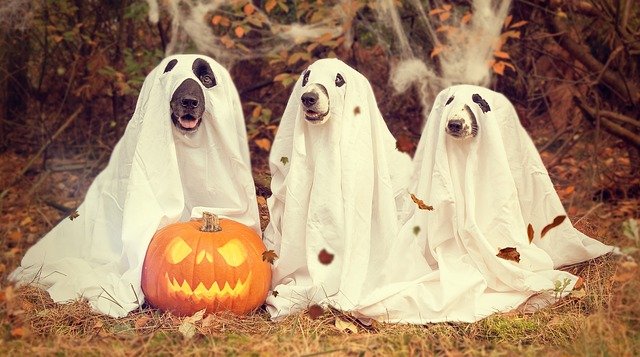
4 Reasons Christians Should Celebrate Halloween
Death has been defeated
Death is a part of life. As a society we spend so much time fearing death or avoiding the discussion. A holiday that reminding us that one day we will all become tombstones and bones is not that bad. For some people, celebrating these things may be their way to coping with and conquering their fear of death. As a Christian, Halloween would be a perfect time to discuss death and why we have no fear to face it. Death has been defeated through the cross.
It points to the supernatural
In the Bible- demons exist. As we fear what we don’t understand, this fact may be distressing to some. My father-in-law has a list of Biblical stories he loves to share at Halloween each year in chapel- precisely because of their unnerving nature. We need to be reminded that there really is a God at work in the world and there really is an invisible world of things we don’t see and don’t understand. We may avoid these topics out of fear, but their reality should be acknowledged while remind ourselves that we have nothing to fear.
Christians have nothing to fear
Remember God has defeated Satan and has given us the power to overcome all the power of the enemy. We have nothing to fear in death. We do not need to fear demons or ghosts or anything seen or unseen. The one who is in us is greater than he who is in the world. We have nothing to fear. In many ways Halloween can serve as our yearly declaration that God is greater than all things- including death and darkness. Therefore, we can be reminded each year of our faith over fear.
Focus on the candy and fun
My kids love Halloween every year. One of their favorite parts is the costume. The opportunity to dress up as one of their favorite characters each year is pure joy! It also fuels their imagination. As a parent I love keeping these costumes around the house for our kids to play with throughout the year. I’ve seen characters from Star Wars chasing Pokemon around our house many times. It’s also a fun night as a family to connect with our neighbors and build friendships with new neighbors.
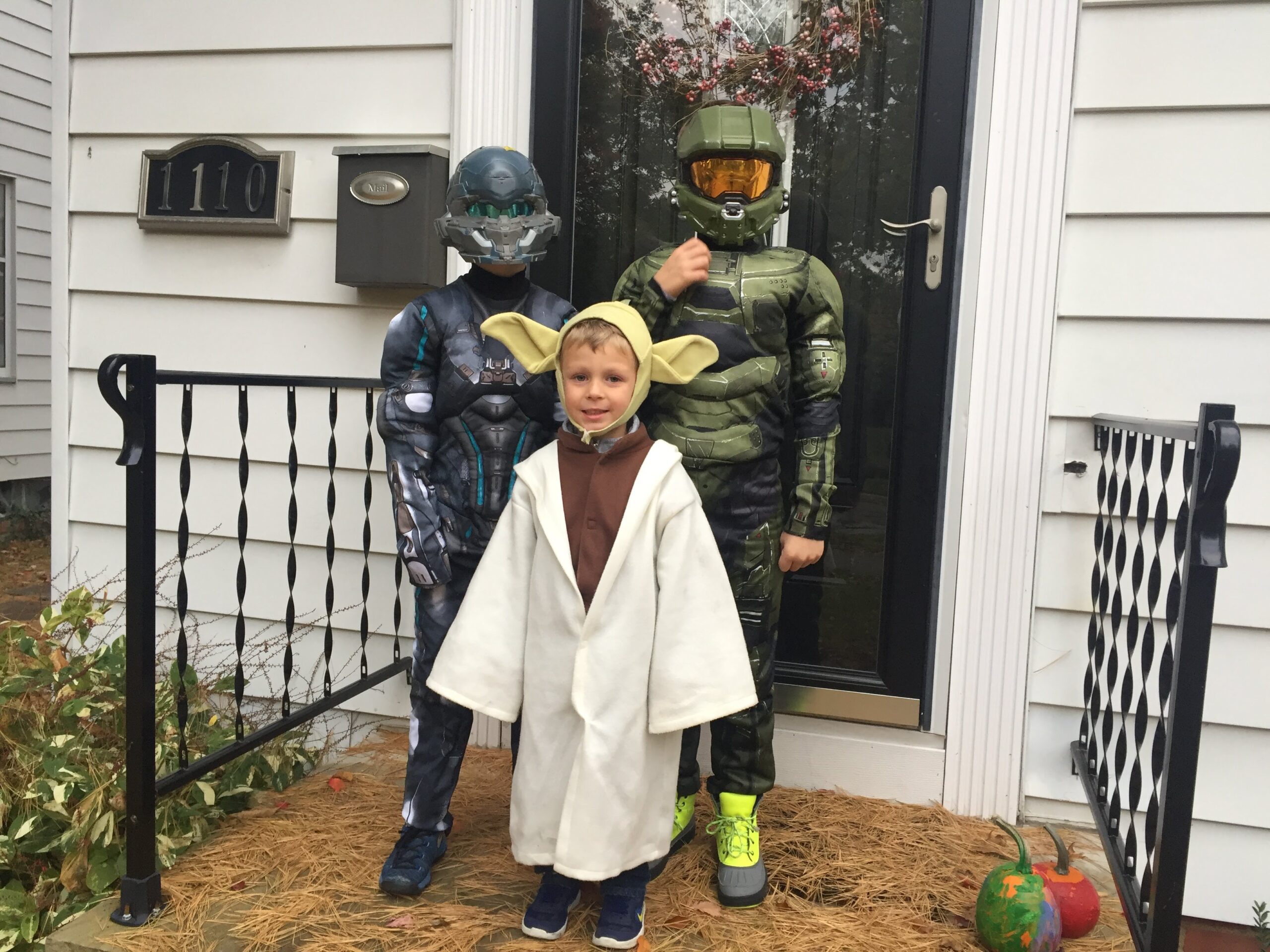
The Problem with Christian Alternatives to Halloween
Many churches create a “safe alternative” to Halloween by doing something called “Trunk or Treat” or some other Fall Festival event. The way it works is a church will park some cars in a parking lot, decorate those cars, and then kids will go car to car gathering candy (while wearing costumes).
Here are how some churches explain their event:
“We are having a drive thru trunk or treat so we can provide a safe environment for the children to come and get candy and be blessed.”
“The event provides a safe family environment for trick or treaters, the children of our church and community.”
“This event will provide an opportunity for our neighbors to enjoy a free, COVID-safe and friendly trick or treating experience. ”
But safe from what?
After organizing the event for a few years, it’s possible most congregants may not even know- they just know it’s a safe alternative to traditional Halloween activities. There are two likely answers. First, a church may believe Halloween is evil. So, they discourage their congregants from taking part in the evil practice of dressing in costumes and gathering candy from house to house. Instead they want them to take part in the holy practice of dressing up and gathering candy from car to car. Or, to protect their church from “Halloween evil” they’ll sponsor a fall-themed festival. These festivals are typically full of apples, pumpkins, bonfires, and other homage to the original Samhain festival.
Bottom Line: The Christian Halloween alternative is not different from traditional trick-or-treating.
The second motivation behind trunk-or-treating may be fear of kidnapping. This fear developed in the 1980’s and sees to continue on through today with increased awareness of sex trafficking. However, Halloween does not present an increased risk of kidnapping. In fact, as many parents walk with their children from house to house, it may be one of the safest nights to be out with so many adults around. If anything, the biggest safety concern for children during Halloween is getting hit by a car.
Bottom Line: With so many parents around, traditional trick-or-treating is safe (as long as you watch for cars).
What about our Christian witness?
One final concern with Christian alternatives to Halloween involves our Christian witness in the community. We can NOT effectively share the gospel of God’s good news while standing in a tall tower while shouting with a bullhorn. Real evangelism takes time and develops through building relationships with friends and neighbors. The church has to stop running away and hiding from our communities and then wondering why we don’t know anyone who doesn’t attend our church. God is at work in the heart of your neighbors and He may have placed you in your community for a purpose. Over the years I’ve noticed that Halloween is a night when I get a chance to spent time with neighbors I rarely ever see or know. Then, these same neighbors stop by our house with their kids for candy. It’s always such a wonderful night to meet and connect with our neighbors.
If anything, churches everywhere should encourage their congregants to take part in their community Halloween festivities. Instead of running away, churches should encourage people to get to know their neighbors. Offer hot chocolate and hot dogs to people passing by. Churches could invest $50 toward anyone looking to get know their neighbors. Families should purchase full-sized candy bars on behalf of their church and just tape on their church logo on the back. If Christians are serious about changing the world, it won’t happen hiding behind walls out of fear.
Christians and Halloween
Dear Christian, it’s OK to celebrate Halloween. It’s not evil. Dressing your child up as a Star Wars character and walking them around your neighborhood to gather candy from your neighbors is not evil or unsafe. It’s an opportunity to meet your neighbors and encourages your child’s imagination. We must stop allowing fear to fuel our Christian activity. Let us engage with our neighbors on a night filled with child-like fun and other festivities. If it was good enough for the Catholic Church to celebrate for hundred of years, then it should be good enough for us as well.
Share This Story, Choose Your Platform!
5 Things Wrong with This Church Sign
I’ve been driving by a particular church sign for the past few weeks that's been driving me crazy. Every time I pass I consider my issues with the sign. I’ve finally decided to sit down ...
Common Advertising Phrases that Mean Nothing
Common Advertising Phrases that Mean Nothing Have you ever noticed how many of the phrases commonly used to advertise products mean nothing? Many common advertising phrases are meant to evoke emotion and make us feel ...
The Problem with Defining Leadership
The Problem with Defining Leadership Defining leadership is difficult. It's kind of like defining love, friendship, or goodness. And similarly, there are almost as many definitions as there are people you may ask. One major ...
3 Reasons Church Leaders Don’t Start Great Volunteer Teams
Church Leaders and Volunteer Teams Great church leaders don’t always lead great volunteer teams. In fact, some hardly oversee any volunteer teams at all. These leaders may lead a team of temporary paid workers, or ...
How to Get Church Volunteers Back After COVID-19
Getting Church Volunteers Back after COVID Churches all across the country are struggling with volunteers. These challenges are caused by pandemic-related problems that have been present over the last two years. Most churches shut down ...
Dear Christian, It’s OK to Celebrate Halloween
Christians and Halloween Confusion The holiday of Halloween conjures up different feelings for Christians across country. Some consider Halloween a fun time for kids to wear cute costumes and get free candy. It’s ...
